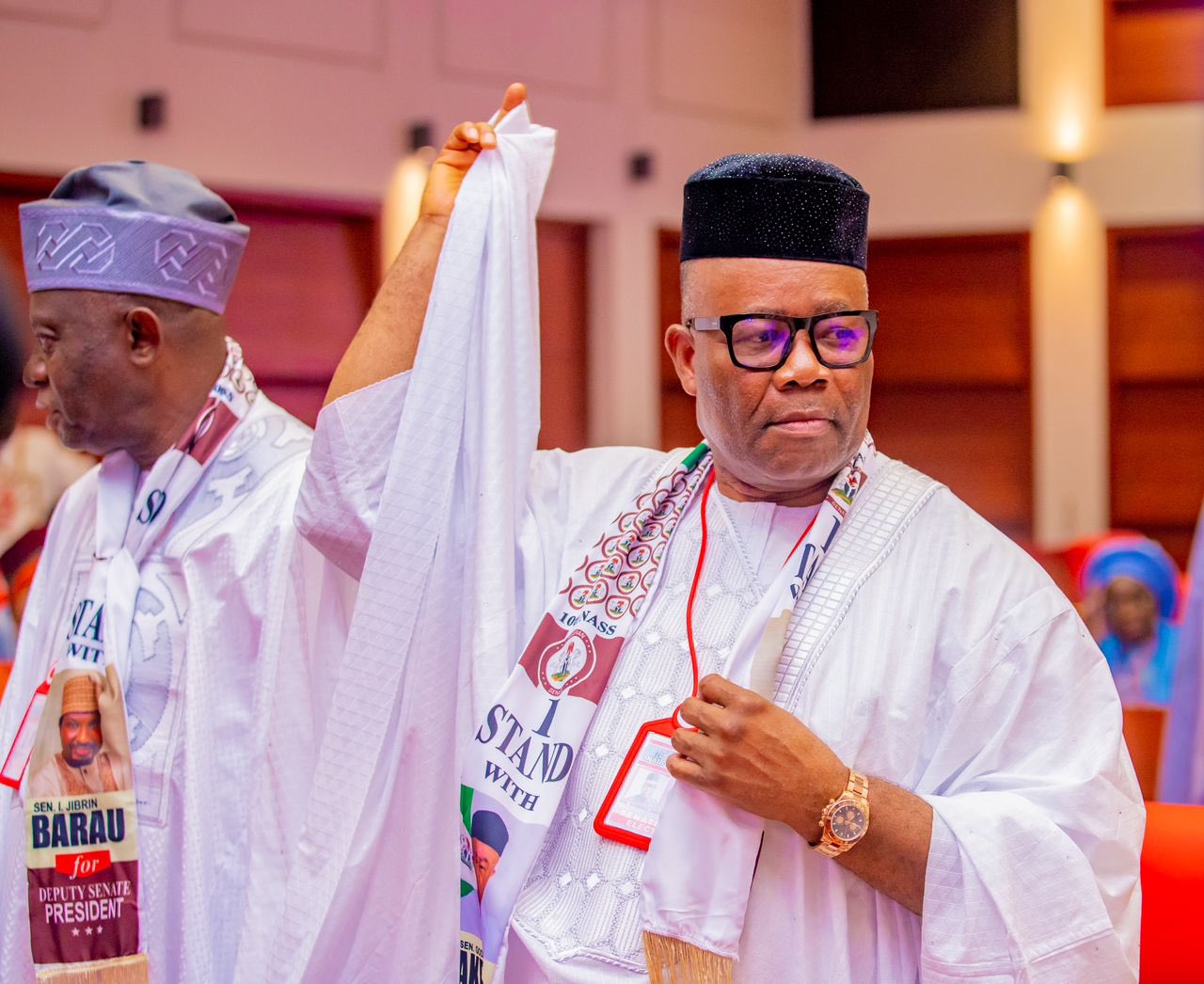What caught my attention in the tumultuous road to electing the new leaders of the National Assembly wasn’t that the lawmakers functioned in violation of the nation’s power-sharing expectations, which had been the fulcrum of chaotic debates since the Muslim-Muslim presidential ticket appeared inevitable. I was more amused by the metamorphosis of lawmakers who opposed the same-faith ticket but ended up rejecting the candidacy of a Christian contestant for the Senate president to push for the election of Senator Abdulaziz Yari.
The situation took a more ominous turn. The repentant opposers of the Muslim-Muslim ticket during the nation’s general elections weren’t only foiling the possibility of a Christian in the presidential line of succession but enabling a political permutation that could see all the top four political offices in the country occupied by Muslims.
The House of Representatives had accommodated compromises and consensuses that pointed to the emergence of a Muslim as Speaker, and the desired representation was expected from the Senate. Yet the so-called agents of power balancing were seen campaigning against their fellow Christians.
Politics, unfortunately, is only seen as a domain of fair arrangements to certain voters. For the players, it’s always about interests. And deals. The Christian or southern lawmakers, who relegated their idealism about power balancing, did so to secure favours in the chamber.
Senator Yari’s campaign group, which referred to itself as the Senate Democratic Caucus, had a Christian, Senator Jimoh Ibrahim, as Director-General. Senator Akpabio’s Senate Stability Group, so named because of their publicised bid to produce representation that could foster stability in the nation, had Senator Ali Ndume as the Director-General.
The unsettling and unpredictable outcomes of the election gave rise to Vice President Kashim Shettima’s apprehension when he met with the Stability Group and expressed views that were later distorted to serve a divisive agenda.
The Vice President recognised that the prevailing political imbalance in the country was such that selecting a less-qualified Christian candidate for the third highest office would be fairer than electing another Muslim, even if the latter is more qualified. It alluded to Muslims already occupying the positions of president and vice president.
In the absence of context, the vice president’s statement may have incited sectional outrage, but that does not diminish the legitimacy of his concern. The subsequent reactions prompted an official statement from the Presidency, clarifying that “What Vice President Shettima advocated during the meeting was that, given that Nigeria’s president and vice president are Muslims, it would not be unwise for lawmakers to choose a non-Muslim candidate, even if they are less qualified than a Muslim candidate, in order to achieve a sense of balance.”
Acknowledging that the absence of context could lead to an “absurd interpretation” and allow the vice president’s statement to be manipulated by those with ulterior motives, the statement clarified that the push for a southern Senate president was not solely the vice president’s idea but rather the stance of the party.
It also emphasised that the statement was made at a time when three contenders for the Speakership race had withdrawn their candidacies to endorse the candidate from the North West.
Personally, I find no fault in this advocacy, particularly because the APC appeared to have paved the way for the emergence of Honourable Abbas Tajudeen, hailing from the North West, as the upcoming Speaker of the Green Chamber. If Yari had succeeded in his well-financed bid, both heads of the 10th National Assembly would not only hail from the same region but also the same sub-region.
The greatest tragedy doesn’t lie in the scenario where both Yari and Tajudeen would have assumed the roles of the third and fourth most influential figures in the country. The greatest tragedy is that the very lawmakers who played a part in their rise to power would, at some point, join a campaign that vilifies Nigeria’s presidential line of succession as an unjustly acquired privilege exclusive to Muslims. Such a campaign would further assert that the country is unsafe even for non-Muslim members of the political elite.
When such a storm of polarisations and bigotries begins to blow, it wouldn’t matter that the Muslims made it to those offices with the help of their Christian colleagues. It wouldn’t matter that Senator Orji Kalu, who broke into tears during the Senate’s valedictory session lamenting that Nigeria had been unfair to him and his people, rejected a fellow southerner and Christian to support Yari’s emergence in exchange for his personal interest—and so did other Christians, from Senator Elisha Abbo, who’s from the North, to Senator Osita Izunaso, a southerner.
Whether we choose to acknowledge it or not, Senator Akpabio’s emergence has invalidated, or at the very least reduced, the likelihood of any group in the country exploiting narratives of an all-Muslim presidential line of succession to fuel the perception of marginalisation against Christians or southerners, or to instigate conflicts. His disruption of the dreaded pattern of succession ensures representation at the most crucial table in the country.
The true intention of the Stability Group may remain undisclosed, but their decision stands as nobler. They are the reason the highest-ranking political positions in the country are now evenly distributed between the North and the South. Even though three of these office-holders are Muslims, the alternative, which Vice President Shettima dreaded, would have only served to amplify bigotry and, potentially, incite violence.

 Join Daily Trust WhatsApp Community For Quick Access To News and Happenings Around You.
Join Daily Trust WhatsApp Community For Quick Access To News and Happenings Around You.


